Animals
-
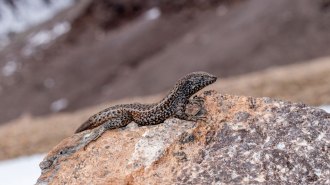 Animals
AnimalsA mountain lizard in Peru broke the reptilian altitude record
Liolaemus tacnae was photographed 5,400 meters above sea level in the Andes, breaking the highest elevation record for a reptile by about 100 meters.
By Jake Buehler -
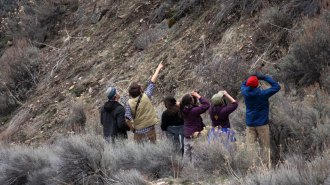 Animals
AnimalsA rare bird sighting doesn’t lead to seeing more kinds of rare birds
The idea that more kinds of rare birds are seen when birders flock to where one has been seen, the so-called Patagonia Picnic Table Effect, is a myth.
-
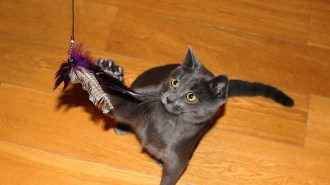 Life
LifeMeatier meals and more playtime might reduce cats’ toll on wildlife
Outdoor cats kill billions of birds and mammals each year. Simply satisfying their need to hunt or supplementing their diets could lessen that impact.
-
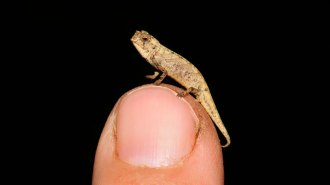 Animals
AnimalsA new chameleon species may be the world’s tiniest reptile
The newly described critters, found in the northern forests of Madagascar, may be threatened by deforestation.
-
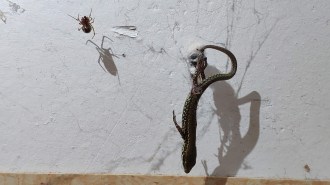 Animals
AnimalsHow a tiny spider uses silk to lift prey 50 times its own weight
Dropping the right silk can haul mice, lizards and other giants up off the ground.
By Susan Milius -
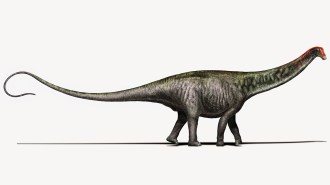 Animals
Animals50 years ago, scientists made the case for a landlubbing Brontosaurus
In 1971, a scientist argued for a landbound Brontosaurus instead of a swampy swimmer. Recent evidence comes from studies of its ancient environment.
-
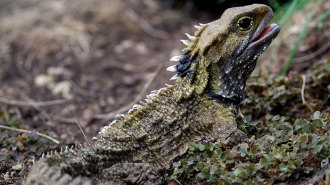 Genetics
GeneticsLizard-like tuatara carry two distinct mitochondrial genomes
Having two mitochondrial genetic instruction books, a first for vertebrates, may help explain tuatara’s unique ability to tolerate cold temperatures.
-
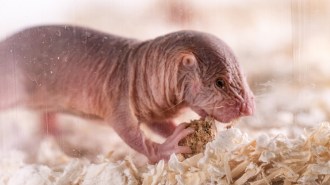 Animals
AnimalsNaked mole-rat colonies speak with unique dialects
Machine learning reveals that these social rodents communicate with distinctive speech patterns that are culturally inherited.
-
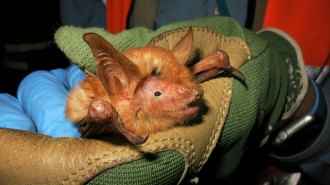 Animals
AnimalsA new orange and black bat species is always ready for Halloween
A new species from the sky islands of Africa’s Nimba Mountains shows bats’ colorful streak.
By Susan Milius -
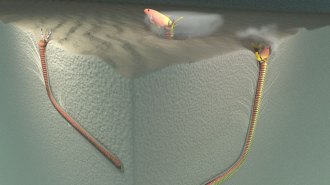 Life
LifeGiant worms may have burrowed into the ancient seafloor to ambush prey
20-million-year-old tunnels unearthed in Taiwan may have been home to creatures that ambushed prey similar to today’s monstrous bobbit worms.
-
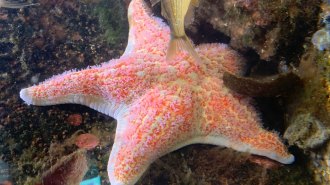 Animals
AnimalsSome bacteria are suffocating sea stars, turning the animals to goo
For years, researchers thought an infectious pathogen was behind sea star wasting disease. Instead, bacteria deplete the starfishes’ oxygen.
-
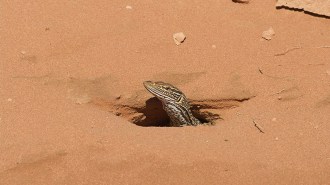 Life
LifeMonitor lizards’ huge burrow systems can shelter hundreds of small animals
Two species of Australian monitor lizards dig nests four meters deep. Now scientists reveal that the burrows are home to far more than their creators.
By Jake Buehler